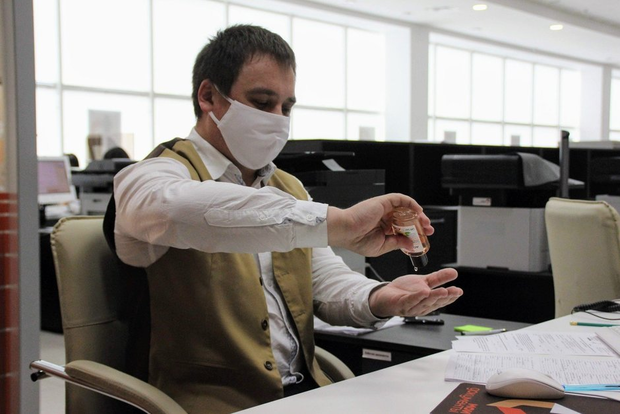Waiting for ‘Centaurus’ invasion: demand for masks among Tatarstan citizens grow, but not everywhere
The incidence of coronavirus is growing in Russia, including Tatarstan. The new subspecies of the coronavirus Omicron strain, the BA.2.75 variant nacknamed “Centaurus”, is causing concern, although some experts consider it a sign of the end of the pandemic. In this regard, residents have begun to be more actively interested in personal protective equipment. However, the demand for them is not growing everywhere and not on all trading platforms.
Yelabuga has become a leader in the growth of demand for masks
According to the Wildberries press service, Tatarstan residents have ordered almost twice as many masks this month as in June (+49%). At the same time, in Russia as a whole, the demand for personal protective equipment has increased by 109%.
Among the cities of Tatarstan, the highest dynamics of demand for masks has been recorded in Yelabuga — there it has grown by 233%. The second is Zelenodolsk, whose residents have become interested in personal protective equipment by 150% more often. Almetyevsk is in the top three leaders in the growth of demand for masks (+120%).
Until July 11, sales of masks in the country were declining, but then, for the first time in 2022, the demand for them, as well as for skin antiseptics, began to grow. Wildberries associates this with two reasons: firstly, with an increase in the incidence of COVID-19, and secondly, with the recommendations of the authorities, despite the suspension of the mask regime, to wear protective equipment in public places.
Russians prefer to buy masks with a stock — packages in which there are at least 50 pieces, Wildberries analysts found out. Now the average price of one mask in a set of 100 pieces has reached a minimum for the last three years of the coronavirus pandemic — 1,3 rubles, while two years ago, at its peak, it reached 31 rubles.
As for skin antiseptics, which became popular among Russians during the pandemic, they also began to be in high demand. In the last two weeks of this month, it has increased by a third overall.
Demand for masks and antiseptics is stable
Meanwhile, Ozon does not observe an increase in demand for masks and antiseptics. As the press service of the marketplace told Realnoe Vremya, for the last two weeks of July in Tatarstan, it is kept at the level of indicators of the same period in June.
As in Wildberries, Ozon noticed that Tatarstan residents prefer to buy a set of masks. Residents of the republic most often order sets of 20 pieces in a package.

The demand for antiseptics remains at the same level. As noted in Ozon, their use has become a habit among residents of many regions, including Tatarstan.
Tatarstan is free from masks since June 6
Officially, Tatarstan citizens took off their masks on June 6 — it was on this day that the Cabinet of Ministers of Tatarstan suspended the mask regime on the territory of the region by its decree. The head of the press service of the president of the republic, Lilia Galimova, explained that the decision was made against the background of a decrease in the incidence of COVID-19.
At the same time, residents of Tatarstan over 65 years of age and citizens with chronic diseases of the cardiovascular system are recommended to wear masks in crowded places, it follows from the decree of the Cabinet of Ministers of the Republic. They are also recommended for people with cancer, pregnant women, patients suffering from obesity and immunodeficiency, regardless of age.
The mask regime has been suspended throughout Russia. However, the Rospotrebnadzor of the Russian Federation made the corresponding decision much later than Tatarstan and other regions of the country — at the beginning of this month.
Anna Popova's department announced the cancellation of the mask regime and other anti-weed measures on July 1. The next day, the resolution signed by her entered into force.
The decision to cancel the anti-Covid-19 restrictions was made in connection with a “steady decrease in the intensity of the epidemic process for COVID-19", which has been observed over the past four months. At the same time, in case of deterioration of the epidemic situation, measures can be restored.